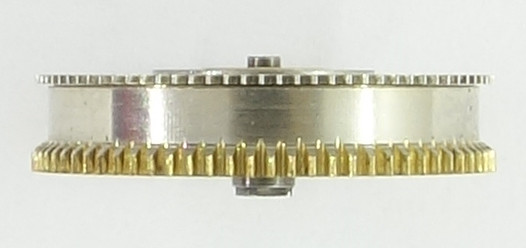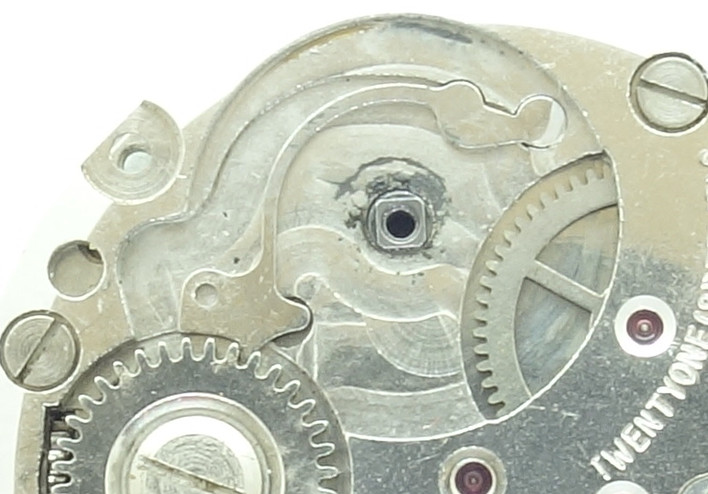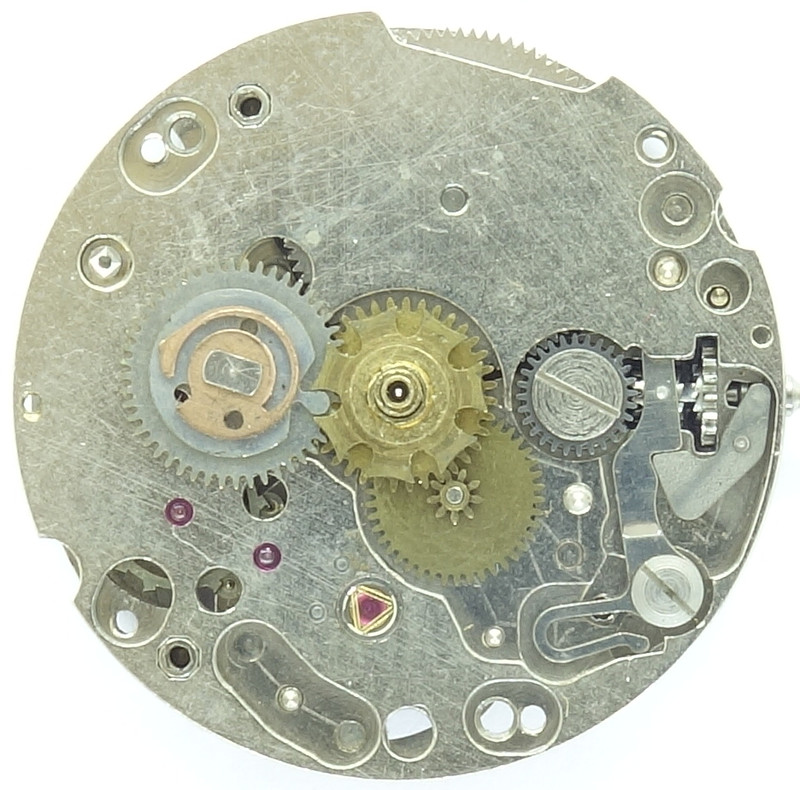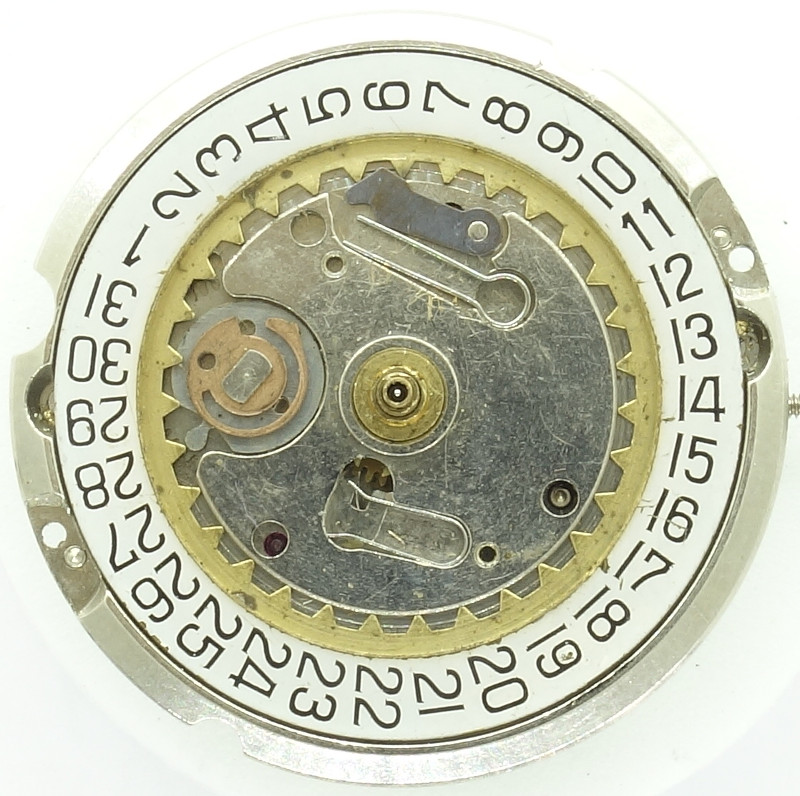Description
The large 13 1/2 ligne Ebosa 681 offers with its day and date indication the maximum of what you could expect from a Roskopf pin lever movement.
In terms of quality, there’s no need to hide, all bearings, except those for the center seconds axle and the second wheel are equipped with rubies. Additionally, two cap jewels and on the dial side, for ruby plates for bearing the date disc are used, and so, the enormous and advertizable number of 21 jewels was achieved.
Usually, Roskopf movements have one transmission step less, compared with traditional lever movements. The Ebosa 681 is different, here, the mainspring barrel is followed by four wheels: Second wheel, third wheel, seconds wheel and lever wheel. The center second pinion is driven indirectly by the third wheel.
Because of this construction, the usual beating rate of 18000 A/h was used. Standard Roskopf movement usually beat a little lower with 17280 A/h.
The flat three-leg anular balance is beared in two Novodiac shock protections. This is unusual, too, for a Roskopf construction, because they usually lack a shock protection for cost reasons.
The mainspring barrel is typical for a Roskopf movement: Its upper gear (silver colored) is mounted with a slipping clutch and drives the hands on the dial side. But there’s an exception here, too: Only the cannon pinion is driven, not the hour wheel. For this, a conventional changer wheel is used.
The ratched, which is located on the movement side below the ratchet wheel is a pretty genious construction, which consists of only one part, a flat ratchet, which is also its spring. Since it is located below the ratchet wheel, it cannot come out of its position and lose intervention.
On the yet empty dial side, you can see the yoke winding system, which is also a very efficient construction. There’s only one single part used, a yoke, which is at the same time its setting lever spring.
As common on Roskopf movements, the hands setting wheel does not engage with the cannon pinion, but with the top gear of the mainspring barrel, which drives, as described above, the cannon pinion.
Additionally, the triangular Novodiac shock protection can be seen at position 6:30, as well, as the two lever pins.
The date setting wheel is driven by the hour wheel. It has got a fixed finger for switching the weekday back and forth, as well, as a moveable finger to advance the date. By setting the time back to 20h and forth, the date can be corrected semi-fast.
The fixed, rounded finger of the switching wheel engages with the star wheel of the weekday indication. This one has got seven indendations, one for each weekday. So, it is also clear, that the weekday disc has got only one single language.
The date ring is beared on an own module plate and (probably to achieve a higher number of jewels on the dial, and not for technical reasons) on four rubies.
The module is mounted on the dial site with two screws.
The date is held on position with a pawl-spring combination. The usage of the second spring (a 6 o’clock) is not known, since it does not engage with the star wheel for the weekday indication, which is either way always correctly positioned.
The date module plate is closed with a cap plate and so the springs cannot fly away.
The weekday has got only two positions, but on the intermediate positions, the weekday is printed a second time, problably to avoid displaying an empty weekday during the switch, which takes some time.
The connection with the star wheel is done by three flexible bulges, not really high-end but economic.
Technical data
| Manufacturer: | Ebosa |
| Caliber: | 681 |
| Size: | 13 1/2''' (measured: 30,6mm) |
| A/h: | 18000 |
| lift angle: | 55° |
| Number of jewels: | 21 |
| Escapement: | Pin lever |
| Balance types: | Nickel anular balance |
| Shock protection(s): | Novodiac |
| Balance bearing / direction hairspring: | Counterclockwise |
| Moveable stud: | yes |
| Adjust mechanism: | Hairspring key |
| Construction: |
|
| Construction type: | pillar construction |
| Winding mechanism: | yoke winding system |
| Features: |
|
| Inventory number: | 19030 |













